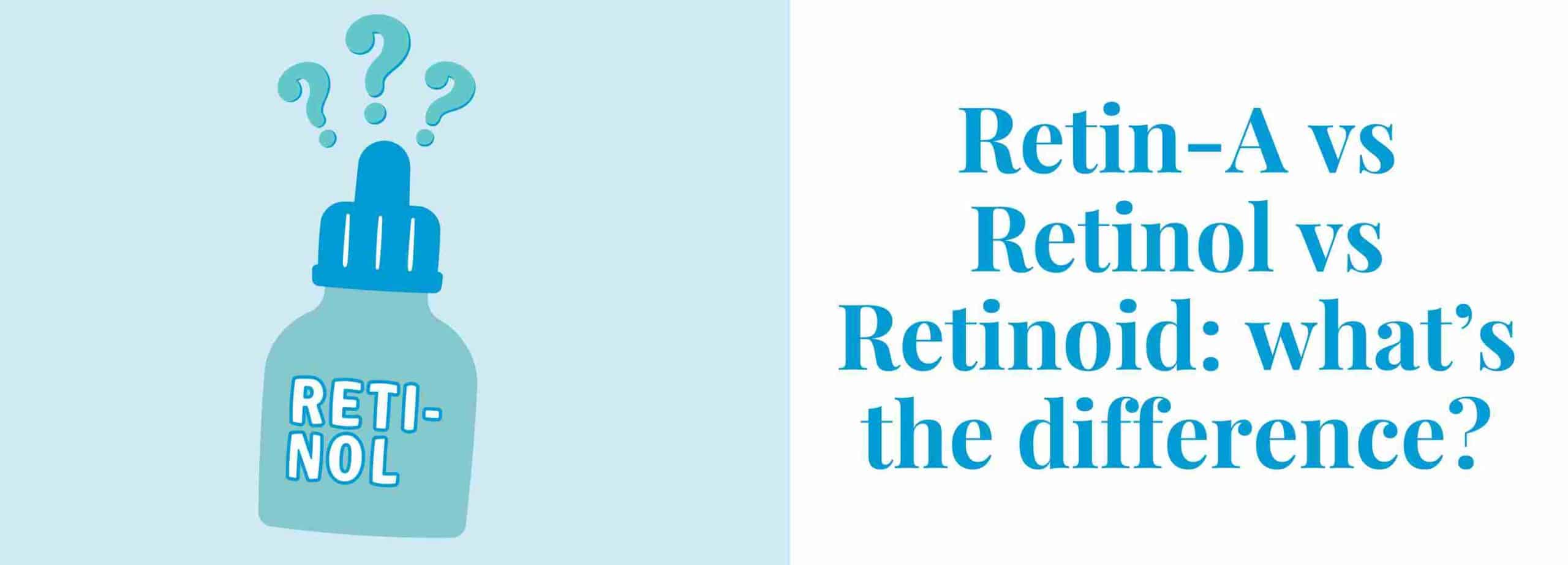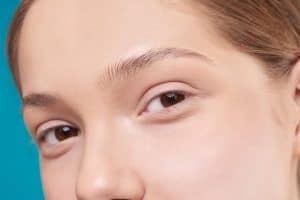Medically reviewed by Sophia Yen, MD, MPH
Both Retin-A (tretinoin) and Retinol are commonly used in skincare to treat acne, reduce the appearance of fine lines and wrinkles, and enhance overall skin texture and appearance. But despite both being retinoids, there exist notable distinctions between these two skincare treatments.
What Are Retinoids?
Retinoids are a group of skincare ingredients derived from vitamin A that can work wonders for your skin! They’re often used to address a range of skin concerns, including acne, hyperpigmentation, and aging. These compounds work by increasing cell turnover and collagen production, which ultimately improves skin texture and reduces the appearance of fine lines and wrinkles.
Retinoids come in various forms, from prescription-strength medications like tretinoin (Retin-A), adapalene (Differin), and tazarotene (Tazorac), to over-the-counter products like retinol and retinyl palmitate. Depending on the type and concentration of the compound used, the strength and effectiveness of retinoids can vary.
So in the same way that Golden Retrievers, Dachshunds, and Corgis are all dogs, any vitamin A derivatives are also retinoids.
Who should use retinoids?
Retinoids can benefit many people, but they are particularly useful for those who want to improve the appearance of their skin, reduce fine lines and wrinkles, and treat acne. They are also suitable for people who want to prevent premature aging.
However, you should consult a doctor before using retinoids, especially for people with sensitive skin. Pregnant and breastfeeding women should not use retinoids, because retinoids can harm the developing fetus.
People who use retinoids should use a good moisturizer as well as sunscreen to protect their skin from sun damage.
What Is Retinol?
Retinol is a type of retinoid and is available over the counter in various skincare products, such as serums, creams, and lotions. It is less potent than prescription-strength retinoids, such as tretinoin (Retin-A), but can still provide benefits to the skin when used consistently and correctly.
Who Should Use Retinol?
If you’re a beginner when it comes to retinoids, retinol may be a great option for you. Because retinol is more gentle on the skin, irritation may not be as severe as with tretinoin. Experts have found that retinol is effective at improving mild acne and signs of aging — it might just take longer to work than more potent forms of vitamin A like Retin-A (tretinoin).
Note that if you have certain skin conditions like rosacea or very sensitive skin, retinol may be too harsh for you.
What Is Retin-A?
Retin-A (tretinoin) is a prescription-strength retinoid used to treat acne, fine lines, wrinkles, and uneven skin tones. All retinoids are a form of vitamin A. Retinoids increase cell turnover and stimulate collagen production in the skin.
Retin-A work by unclogging pores and preventing the formation of new acne lesions, as well as improving skin texture and reducing the appearance of fine lines and wrinkles. It is typically applied topically in a cream or gel form and should only be used under the guidance of a doctor or other prescriber.
Who Should Use Retin-A?
Retin-A is not recommended for everyone, because it can cause skin irritation and sensitivity. It is generally recommended for individuals who have not seen improvement with over-the-counter treatments. It’s important to speak with a doctor to determine if Retin-A is the right treatment for your skin concerns and to receive proper instructions for use.
What are other Retinoids?
Differin and Adapalene are both retinoid acne treatments, and researchers have found them to be highly effective retinoid products for acne. You can request Differin and Adapalene from our experts doctors at Pandia Health.
Buy Tretinoin Online
At Pandia Health, we want you to love your skin! We make it easy for you to manage your acne and reach your skin goals from the comfort of your home. Our expert doctors can help determine whether you’re a good candidate for Retin-A.
How to Choose the Right Acne Treatment
If you’re struggling with acne-prone skin and finding the right skincare, it’s important to consult an expert. The right acne treatment for you will depend on your skin type and the severity of your acne. A qualified expert doctor will be able to advise whether you should use Retin-A or Retinol.
If your skin is too sensitive to tolerate Retin-A, over the counter retinol products that aren’t quite as strong may be right for you.
If you begin using retinoids, your current skincare regimen may need some tweaks. Certain harsh ingredients like acids can be too much on the skin that’s being treated and can often inactivate the retinoids, making them ineffective.
An expert doctor can advise you on how to adjust your skincare regimen for the best results when you begin to use Retin-A/tretinoin. Adult acne treatment can be a long journey, and at Pandia Health, we’re here to help.
How Pandia Health Can Help
Pandia Health provides quality care through our expert doctors. We believe that you should be able to easily get the care you need for your acne. We make getting acne medication simple with online consultations and prescription-strength acne medications delivered right to your mailbox.
If you’re still debating between Retin-A and retinol and aren’t sure what treatment is best for you, set up an asynchronous online consultation with one of our expert doctors today!
Pandia Health is dedicated to providing accurate, reliable women’s health knowledge. Check us out on Instagram, TikTok, YouTube, and our other social channels for expert insights about acne treatments, women’s health, and lifestyle habits.
Disclaimer: This article is for general informational purposes and is NOT a substitute for professional medical advice. Always seek the advice of your healthcare provider before starting or changing acne treatment.




